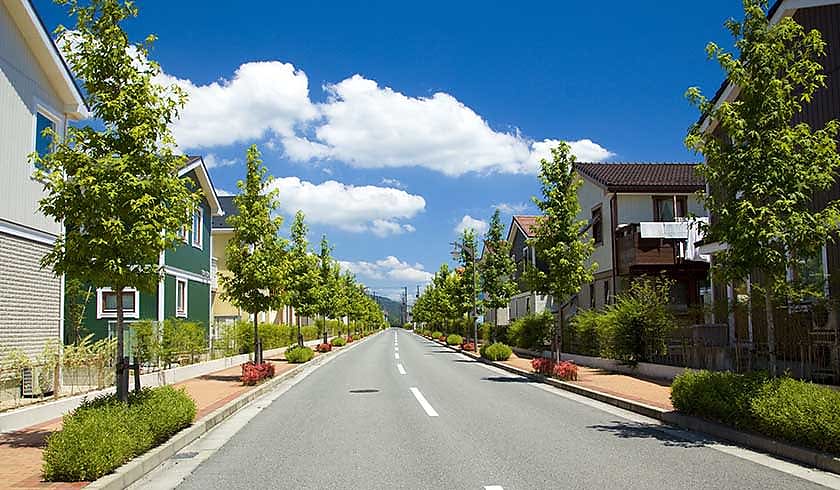‘Too damn high’: Greens reopens talks on rent freeze policy
With housing shaping up as a key issue for NSW voters ahead of the election, the Australian Greens have renewed their push for a controversial policy that was previously slammed as “far-fetched and unrealistic”.

Laying out their housing policies ahead of the 25 March polls, the Greens said the state’s rental sector was “cooked” and in need of urgent reform.
Describing the current rental prices in the state as “too damn high,” the Greens highlighted that renters are experiencing unprecedented rent hikes and are now under “enormous rental stress”.
“Rents have risen hugely in the last 12 months, at four times the increase in wages and at a time when the rise in cost of living expenses is unprecedented.
“Landlords have [gotten] away with increasing rents unchecked for far too long,” the party stated.
The Greens pointed out that “unfair, no grounds” evictions are also contributing to the surging cost of rent.
To address the increasingly dire conditions faced by NSW renters, The Greens pledged to introduce legislation to immediately freeze rents for two years and end no-grounds evictions if the state votes teal in the coming elections.
But Greens’ housing spokesperson and Newtown MP, Jenny Leong, claims that a rent freeze alone isn’t enough to alleviate the pressure on tenants.
The party also wants to establish an independent body to set rent controls, mirroring the one already operating in the ACT.
While tenants can only have their rent increased once every 12 months in NSW, there is currently no limit on the amount of the increase.
Ms Leong said controls would be relative to inflation and cost-of-living pressures under the party’s plan.
Additionally, if elected, the party pledged to introduce limits on the amounts and frequency of rent increases, and bolster the oversight of landlord practices.
As part of its election promises, the party also wants to expand hardship provisions for renters who need immediate relief.
According to Ms Leong, the Greens will draw the “ line in the sand” for a housing system that she claimed to be exploitative and profit-motivated.
“Landlords and real estate agents have [gotten] away with raising rents unchecked for way too long, treating renters as nothing more than an income source for investment properties.
“When the cost of rent is rising four times faster than wages, it’s clear something is seriously broken,” she stated.
“The Greens will fix the system that allows ruthless landlords to get away with huge rent increases and unfair evictions,” Ms Leong stated.
Notably, this is not the first time the drastic measure has been put on the table by the Greens.
In a statement released on 25 August last year, Greens MP Max Chandler-Mather has also called for private rents to be frozen for 24 months in response to the nationwide housing crisis.
For context, the proposal to halt residential rents springboards off a government decision to do so for businesses for eight months during the height of the pandemic.
Describing the measure as “necessary”, Mr Chandler-Mather explained that the nationwide rent freeze would be coordinated by the national cabinet, with “each state and territory to implement it via their respective rental tenancy acts”.
During that time, the measure was largely rebuffed by the industry, with Real Estate Institute of Australia (REIA) president Hayden Groves stating that the plan was well-intentioned but “will do nothing for Australia’s long-term housing supply crunch”.
When asked about the policy proposal, Prime Minister Anthony Albanese said he had not seen any proposal, nor had the Greens raised the potential of a rental freeze with the government “at all”.
Stating, “it’s not clear to me, short of nationalising property, how that could be achieved”, the Prime Minister indicated that “what we do is support real action that has a real process to occur”.
In its renewed call for the rent freeze policy, the Greens highlighted that renters across the country would have been $10.7 billion better off if their call for icing rental payments had been implemented nationwide in the previous 12 months.
“Sydney renters, who saw their rents increase by 28.6 per cent in that 12-month period, would’ve been over $7,000 better off on average, had a rent freeze been in place,” the party argued.
Housing policies are taking centre stage for parties’ political agendas in the lead-up to the election.
Notably, the Labor Party has made its own set of hefty housing election promises, including ending secret rent-bidding, making it easier for people to keep pets in rentals, introducing a portable bond scheme and ensuring there were only “reasonable” evictions.

